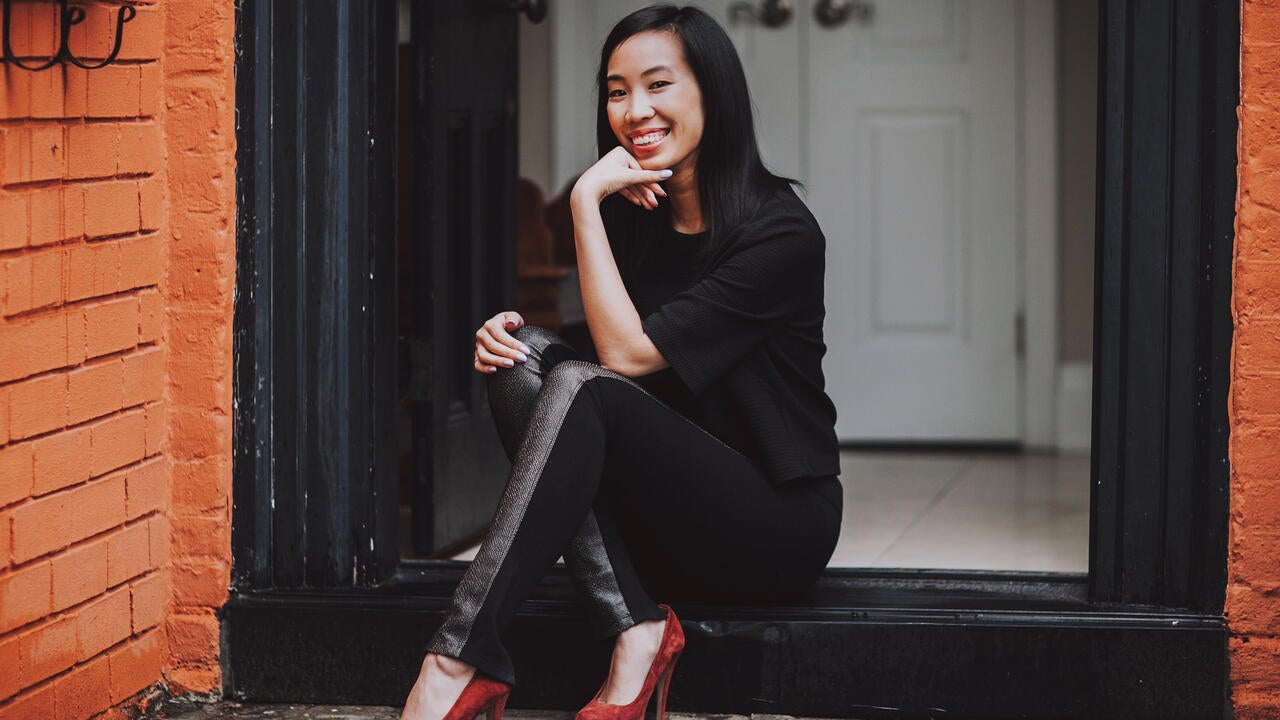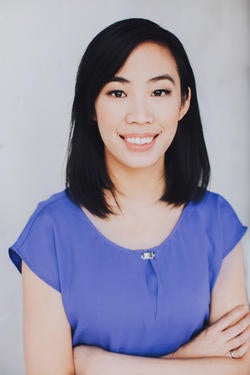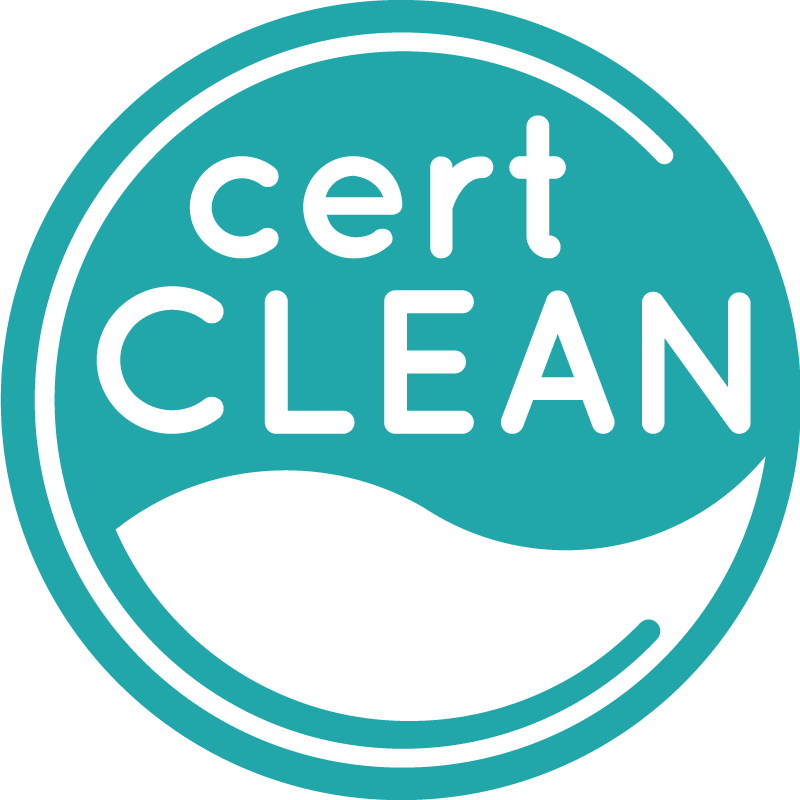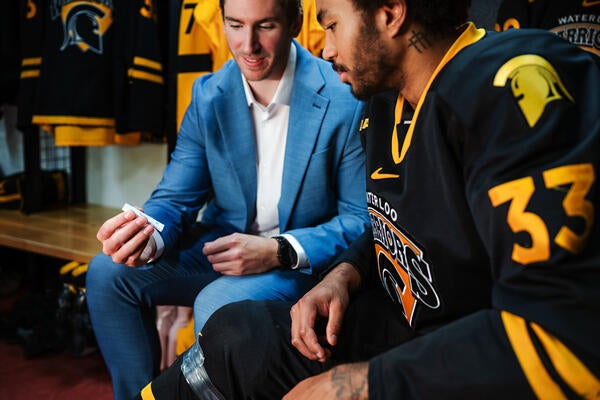
Clean certification
Alumnus raises awareness of skincare products without potentially harmful ingredients

Alumnus raises awareness of skincare products without potentially harmful ingredients
By Carol Truemner Faculty of EngineeringJenise Lee’s passion for cancer prevention inspired her to help health-conscious consumers make informed skincare choices.
The engineering alumnus has founded two Canadian companies over the past five years to raise awareness of skincare creams and other products formulated without potentially harmful chemicals.
Growing up, the idea of becoming an entrepreneur was not on Lee’s radar and it still wasn’t when she completed her Waterloo degree in chemical engineering in 2006.
After graduation, she worked as an environmental engineering consultant for a number of years until, in her words, she realized “there was just so much more to do” when it came to protecting the environment and our health.
“I didn’t want to be on the side of reacting. I didn’t want to be on the cleanup side,” she says. “I wanted to figure out how we can proactively change  so we can do better as a society and not mess it up.”
so we can do better as a society and not mess it up.”
She left her consulting position to return to the classroom in 2011 to pursue an MBA at the Schulich School of Business at York University.
Jenise Lee, a chemical engineering alumnus, has founded two companies to raise awareness of skincare creams and other products formulated without potentially harmful chemicals.
While working on her graduate degree, she became interested in combining her chemical engineering and business skills to elevate awareness of potentially harmful ingredients in beauty and personal care brands used regularly.
“I decided to start with skincare because we lather a lot of products with chemicals on our bodies before we even leave the house in the morning,” she explains.
Just as Lee was finishing her MBA degree, her aunt and her brother Brian, a 2004 Waterloo mechanical engineering alumnus, were diagnosed with terminal cancer within the same week. In both cases, the cancer was due to environmental factors, not genetic ones, she says.
“My life forever changed after that,” she says.
While grieving the loss of her aunt and brother, Lee poured her energy into CertClean, a Toronto-based certification company launched in 2015 that vets skincare products for ingredients such as carcinogens and chemicals that may damage hormonal, reproductive or neurological systems.
Today, there are thousands of products across Canada and in a large number of selected countries around the world certified under CertClean’s  rigorous standards.
rigorous standards.
To receive the company’s designation, which helps shoppers recognize safer alternatives to conventional beauty and personal care items, each product label is carefully screened to make sure it has been formulated without chemicals.
“Our standards are about 1,400 chemicals long – so if the product label contains any of those 1,400 chemicals it’s not eligible for the certification,” says Lee.
There are a one-time assessor fee and an annual licensing fee for each product.
Three years ago, Lee started her second company Purpicks described as the TripAdvisor for organic/nontoxic beauty brands. Today, the site has the world’s largest database of organic skincare items along with thousands of reviews written by customers.
“Purpicks is positioned to be the most powerful recommendation centre for this sector,” she says. “Because of our data, we can make intelligent product recommendations and can hyper-target health-conscious women by age, by skin type that no one else, including Google and Facebook, can do.”
Purpicks was recognized as one of the Top 5 startups in Canada in Alibaba’s global pitch competition, one of the world's biggest startup competitions.
Lee is a recipient of Canada’s Clean 50 Award for sustainability efforts in the retail sector and in 2017 was honoured as one of Canada's Top 100 Health Influencers for shaping the health and wellness of Canadians and was nominated for the Governor General's Innovation Award.
Regularly invited to talk about her entrepreneurial journey at conferences and workshops, she returned to campus a few years ago as the industry speaker for Go ENG Girl, an annual event for girls in Grades 7 to 10 to learn more about engineering.
Lee credits Waterloo Engineering’s co-op program for helping her pivot to where she is today both personally and professionally.
“It helped me pay for my education so I could follow my dreams, find out what I wanted to do for myself, and what my purpose is,” she says.

Read more
Upside Robotics secures new funding to accelerate the future of sustainable farming

Read more
Redefining capstone learning by bringing students, faculty and community partners together to tackle real-world challenges

Read more
New medical device removes the guesswork from concussion screening in contact sports using only saliva
The University of Waterloo acknowledges that much of our work takes place on the traditional territory of the Neutral, Anishinaabeg, and Haudenosaunee peoples. Our main campus is situated on the Haldimand Tract, the land granted to the Six Nations that includes six miles on each side of the Grand River. Our active work toward reconciliation takes place across our campuses through research, learning, teaching, and community building, and is co-ordinated within the Office of Indigenous Relations.